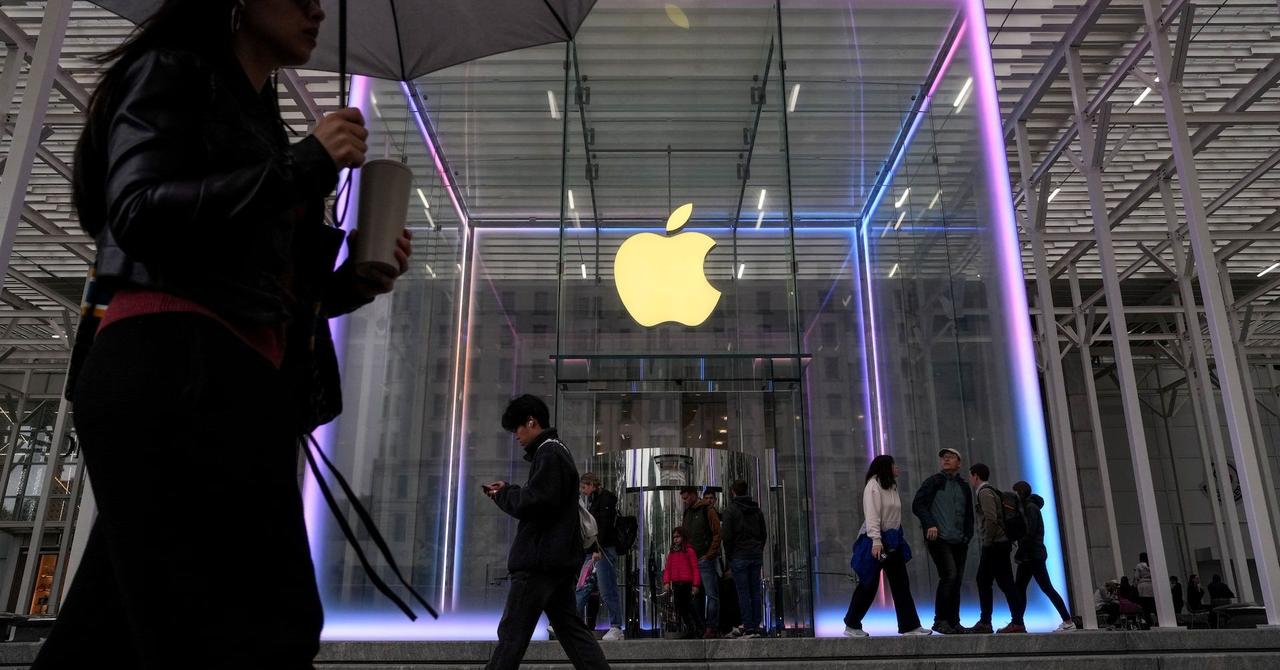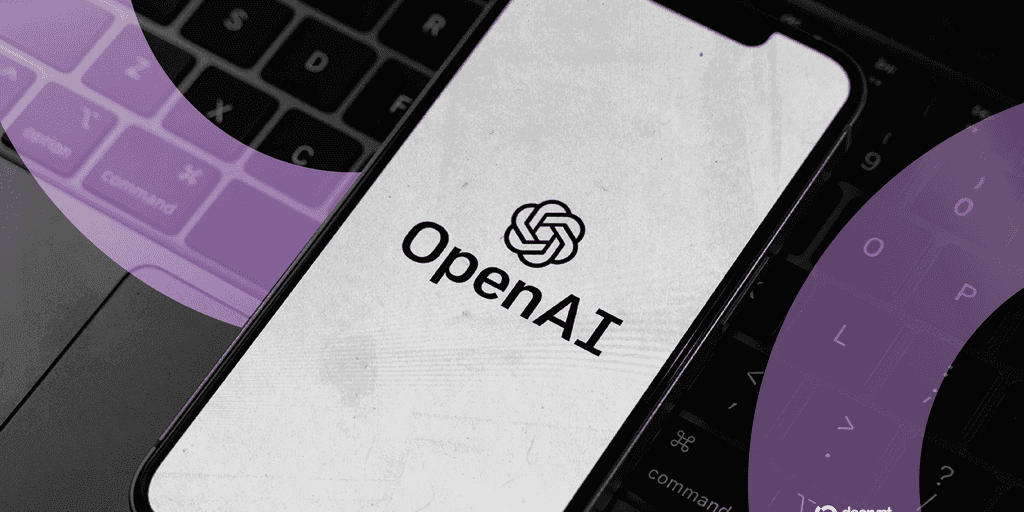Apple Faces €14.4 Billion Tax Bill in EU Court Ruling
4 Sources
4 Sources
[1]
Why EU's $14.4 billion fine on Apple is a headache for Ireland - Times of India
The European Union's (EU) recent ruling demanding Apple pay 13 billion euros ($14.4 billion) in back taxes has sparked mixed reactions in Ireland. While the government seeks to downplay the impact, the country faces concerns about its reputation as a corporate tax haven. Reputational damage for Ireland Ireland has been a popular destination for multinational corporations (MNCs) due to its low tax rates.The government has vigorously defended its tax policies, arguing that they have contributed significantly to economic growth and job creation. However, the EU's ruling has challenged this narrative. The EU's ruling has raised questions about Ireland's reputation as a tax haven. While some experts believe that the damage is likely to be temporary, the case has highlighted the challenges of balancing economic growth with concerns about tax fairness. As Ireland continues to navigate these complexities, it will be crucial to maintain its attractiveness to foreign investors while addressing the concerns raised by international regulators. Ireland government's 'inflation worries' While the government has acknowledged the need to pay the back taxes, it has emphasized that the issue is largely a matter of historical significance due to changes in tax laws. Finance Minister Jack Chambers stated that the funds would be carefully considered for future use but would not be added to the upcoming budget. Despite the ruling, Ireland remains a highly attractive location for foreign investment. The country's corporate tax receipts have continued to surge, and it has established a sovereign wealth fund with ambitious growth targets. However, the government is cautious about increasing spending too rapidly, as it could fuel inflation. The TOI Tech Desk is a dedicated team of journalists committed to delivering the latest and most relevant news from the world of technology to readers of The Times of India. TOI Tech Desk's news coverage spans a wide spectrum across gadget launches, gadget reviews, trends, in-depth analysis, exclusive reports and breaking stories that impact technology and the digital universe. Be it how-tos or the latest happenings in AI, cybersecurity, personal gadgets, platforms like WhatsApp, Instagram, Facebook and more; TOI Tech Desk brings the news with accuracy and authenticity.
[2]
"Illegal tax benefits" to Apple: EU court asks Apple to pay $14.4 billion in back taxes - Times of India
The European Union's top court ruled on September 9 that Apple must pay €13 billion ($14.4 billion) in back taxes to Ireland, dealing a major blow to the tech giant in a long-running legal battle. The European Court of Justice (ECJ) upheld a 2016 decision by the European Commission that accused Apple of receiving illegal tax benefits from Ireland for over two decades. The ruling marks a significant victory for EU regulators in their efforts to crack down on tax avoidance by multinational corporations. It also represents a setback for Apple, which had previously won an appeal against the Commission's decision in a lower EU court in 2020. The case stems from a 2014 investigation by the European Commission into Apple's tax arrangements in Ireland, where the company has its European headquarters. In 2016, the Commission ordered Ireland to recover up to €13 billion in unpaid taxes from Apple, arguing that the tech company had received preferential tax treatment that amounted to illegal state aid. Apple and Ireland appealed the decision, and in 2020, the EU General Court sided with them, annulling the Commission's ruling. However, the Commission appealed that decision to the ECJ, which has now overturned the lower court's judgement. The Irish government, which has long defended its tax practices, said the case "involved an issue that is now of historical relevance only" and that it will begin the process of transferring the assets held in an escrow fund to Ireland. Apple expressed disappointment with the ruling, stating that the European Commission was "trying to retroactively change the rules" and ignoring that its income was already subject to U.S. taxes. The decision comes just a day after Apple's annual fall event, which was reportedly moved forward from its usual Tuesday slot to Monday, September 9. At this event, Apple unveiled its latest product lineup, including the iPhone 16 and new Apple Watch models. The TOI Tech Desk is a dedicated team of journalists committed to delivering the latest and most relevant news from the world of technology to readers of The Times of India. TOI Tech Desk's news coverage spans a wide spectrum across gadget launches, gadget reviews, trends, in-depth analysis, exclusive reports and breaking stories that impact technology and the digital universe. Be it how-tos or the latest happenings in AI, cybersecurity, personal gadgets, platforms like WhatsApp, Instagram, Facebook and more; TOI Tech Desk brings the news with accuracy and authenticity.
[3]
Apple 'required' to pay Ireland £11bn after illegal state aid case
The European Court of Justice has ordered Apple to pay $13bn (£11bn) in back taxes to Ireland following the conclusion of a long-running legal fight that the country did not bring. The European Commission brought the action in 2016, to the fury of both Apple and Ireland's government, on the grounds that the EU member state had granted Apple unlawful aid through sweetheart tax base deals over 11 years. The EU's executive arm said the company's effective corporate tax rate on its European profits dropped from 1% in 2003 to a mere 0.005% by 2014. Money latest: Martin Lewis hits out at councils over 'grotesque' tax collection methods Ireland had a corporation tax rate of 12.5% within that time frame - one of the lowest in the western world - enabling it to attract top US tech names and bring welcome employment. Apple fought the commission's efforts to force a backdated payout through a series of legal challenges but the EU's top court said its ruling on Tuesday was final. "We are disappointed with today's decision as previously the General Court reviewed the facts and categorically annulled this case," Apple said in a statement. "There has never been a special deal," the company insisted. The Irish government signalled that it would begin to draw down money from an escrow account that Apple had been told to set up to allow for settlement of the bill. "The CJEU has found that the tax paid was insufficient and that a greater amount of taxation was required to be recovered," it said in its own statement. Read more from Sky News: State pension to rise by more than £400 in April Apple launches new artificially intelligent iPhone "The Irish position has always been that Ireland does not give preferential tax treatment to any companies or taxpayers." The response described the ruling as only of "historical" significance because, since the commission order in 2016, the country had changed rules regarding corporate residence, the attribution of profits to branches of non-resident companies operating in the state and adapted its tax rules in line with international agreements. In 2021, a 15% minimum corporate tax rate for large firms was agreed by more than 130 nations, including Ireland, in a bid to ease global tax competition and discourage cross-border evasion or avoidance.
[4]
Apple loses EU court battle over €13 billion Irish tax case
Apple (NASDAQ:AAPL) has faced a significant legal setback as it lost its battle over €13 billion ($14.4 billion), a long-standing court battle concerning its tax arrangements in Ireland, marking a notable victory for the European Union (EU) in its ongoing campaign against preferential tax deals granted to major corporations by individual nations. The European Court of Justice overruled a lower court's earlier decision in the case, saying it "confirms the European Commission's 2016 decision: Ireland granted Apple (AAPL) unlawful aid which Ireland is required to recover." The case has spanned several years and centered around allegations that Ireland granted Apple (AAPL) unfair tax advantages, allowing the tech giant to pay substantially less tax than other businesses. In 2016, the Commission ordered Apple (AAPL) to repay the €13 billion, citing that the tax benefits were illegal under EU regulations. Apple (AAPL) and Ireland both contested the ruling, leading to a series of appeals and legal proceedings. Despite these efforts, the EU court's recent dismissal solidifies the Commission's stance and obligates Apple (AAPL) to comply with the repayment order. "We are disappointed with today's decision, as previously the General Court reviewed the facts and categorically annulled this case," Apple said in a statement. More on Apple: Apple's September Event: No Growth Catalysts Here Apple iPhone Event Falls Flat Wall Street Lunch: Apple Demos IPhone 16, AI Features Citi screens for mid-cap tech stocks for barbell investment approach with Magnificent 7 Apple shows off AI-packed iPhone 16 line
Share
Share
Copy Link
The European Union's top court has ordered Apple to pay €14.4 billion in back taxes to Ireland, ruling that the tech giant received illegal tax benefits. This decision marks a significant victory for the EU in its fight against corporate tax avoidance.

EU Court Rules Against Apple in Tax Case
In a landmark decision, the European Union's top court has ruled that Apple must pay €14.4 billion ($13.8 billion) in back taxes to Ireland
1
. The Court of Justice of the European Union (CJEU) upheld a 2016 decision by the European Commission, which found that Apple had received illegal tax benefits from Ireland between 2003 and 20142
.Background of the Case
The case stems from a long-standing dispute between the European Commission and Apple regarding the company's tax arrangements in Ireland. The Commission argued that Apple's effective corporate tax rate on its European profits was as low as 0.005% in 2014, far below Ireland's standard rate of 12.5%
3
.Implications for Apple and Ireland
This ruling presents significant challenges for both Apple and Ireland. For Apple, it means a substantial financial hit, although the company has the means to pay the fine. The tech giant had previously stated that the case was not about how much tax they pay, but where they are required to pay it
4
.For Ireland, the situation is more complex. The Irish government has paradoxically been fighting alongside Apple against receiving the money. This is because accepting the payment could damage Ireland's reputation as a low-tax destination for multinational corporations, potentially impacting future foreign investments
1
.Related Stories
Broader Implications for Corporate Taxation
This case is part of a larger effort by the EU to crack down on what it sees as unfair tax practices. The ruling sends a strong message to multinational corporations about the EU's stance on tax avoidance strategies. It also highlights the ongoing debate about where large tech companies should pay their taxes, especially given the global nature of their operations
2
.Next Steps
Following the court's decision, Apple and Ireland have two months and ten days to appeal the ruling. If they choose not to appeal, or if their appeal is unsuccessful, Ireland will be required to recover the unpaid taxes from Apple, plus interest
3
.The case has significant implications for international tax law and could potentially influence future tax arrangements between large corporations and EU member states. It also underscores the EU's commitment to ensuring fair competition and preventing what it considers to be harmful tax practices within the bloc.
References
Summarized by
Navi
[4]
Related Stories
Recent Highlights
1
ByteDance Faces Hollywood Backlash After Seedance 2.0 Creates Unauthorized Celebrity Deepfakes
Technology

2
Microsoft AI chief predicts artificial intelligence will automate most white-collar jobs in 18 months
Business and Economy

3
Google reports state-sponsored hackers exploit Gemini AI across all stages of cyberattacks
Technology








